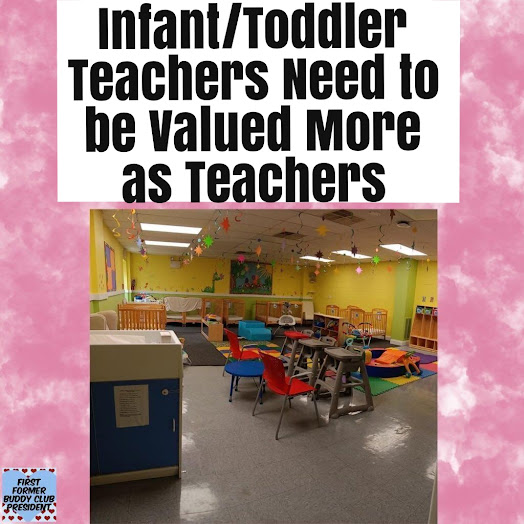Trauma-Informed Practices for Supporting Children with Incarcerated Parents
I wrote an essay about ways to support children with incarcerated parents in the Family Partnerships in Early Childhood Education course that I took in my first semester of college. I decided to upload this essay as a blog post since incarceration and crime are trauma and trauma-informed care and education is a very important part of the education field.
CONTENT WARNING: I would like to mention that I am not a therapist or lawyer. All content posted on disability advocate/teacher influencer page is for educational purposes with no intent to provide any professional services. Social media should never be used as a substitute for mental nor medical health care advice nor legal advice. If your mental health is affected by incarceration and/or you wish to seek legal action, it is okay to get support. I highly recommend seeking support from a therapist, lawyer, and/or other legal/mental health professional who is qualified to do so.
TRIGGER WARNING: If you are affected by incarceration in your family, this blog post may be triggering. If you need support right now, please seek support from a therapist, other mental health professional, or call the National Suicide Prevention Lifeline at 988 or text "HOME" to the Crisis Text Line at 741741 if you live in the USA or text "CONNECT" to the Crisis Text Line at 686868 if you live in Canada. You can also visit my hotline resources page by clicking on this hyperlink: Hotline Resources.
The Children of Incarcerated Parents Library is a wonderful and very useful resource for teachers working with students with incarcerated family members. The Children of Incarcerated Parents Library contributes free information made for people serving children of incarcerated parents and their caregivers. The following information is provided:
Before and after visiting an incarcerated parent, it is a good idea to talk to the child about the visit. Teachers can talk to the child about what they remembered about the visit, what they liked and disliked about it, and what was hard to say to their incarcerated parent. Teachers should tell the child that it is okay to talk about their incarcerated parent and can even prepare the child for the next visit. Many children experience negative feelings of confusion, anger, sadness, fear, and embarrassment in peer groups about their parents being incarcerated. Adults need to provide labels for children's feelings without judging them, good role models for children, teach effective communication skills to the children by saying what they mean and listening with empathy and understanding. The child's differences, tastes, and choices in this situation need to be respected too. For example, a child may choose to distance oneself from their relationship with their incarcerated parent. Children have many questions about their incarcerated parents too and they need truthful answers to these questions that they will understand. For example, if a child asks what happened to their parent, a good response that the child will most likely understand is, "He/She/They took something that did not belong to him/her/them, it was wrong, and he/she/they are being punished for it." Small descriptions of the crime such as, "He/She/They hurt someone" or "He/She/They stole something," are also necessary. Older children often have a better understanding of the complete story of the crime. Sometimes it is best if the details of the crime are not shared with the children. Most often the truth is better than the child imagines. It should also be explained to the children that the action of their parent was wrong while their parent is still not a bad person just like how when a child does something wrong that does not mean the child is bad. Sometimes it may be difficult to tell the truth to children about where their incarcerated parent is.
When a child's behavior concerns you whether or not you think it has to do with the parental incarceration, always check with the child's pediatrician. It is helpful to know when the behaviors began, how often the behaviors occur, how intense the behavior is, and to what level the behaviors disrupt everyday life. In this case, it may be helpful to the caregiver and the child for their teacher to be aware of the parent incarceration in order to appropriately handle the child's behavior, health, and safe. It is also important if the teacher or anyone else in the school has experience working with incarcerated parents and their children.
You might also like and gain a better understanding of Trauma-Informed Care and Education practices by reading:
- Lack of Empathy for Students is a Huge Issue in the Education Field
- There Needs to be More Discussions About Awareness, Prevention, and Healing From Adverse Childhood Experiences (ACEs)
- Trauma-Informed Care and Education Practices in Infant Classrooms
- How to Help Young Toddlers of All Abilities and Their Families Feel Safe at Childcare While in a Pandemic
- My 42 Favorite Classroom Affirmations
You can also visit my hotline resources page by clicking on this hyperlink: Hotline Resources
1. (NRCCFI) at Rutgers-Camden. "The National Resource Center on the Children and Families of the Incarcerated." Rutgers, https://nrccfi.camden.rutgers.edu/. Accessed 17 October 2022.



Comments
Post a Comment